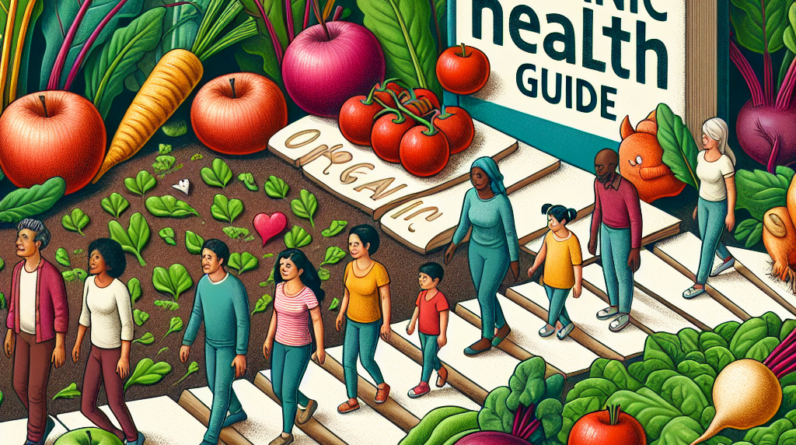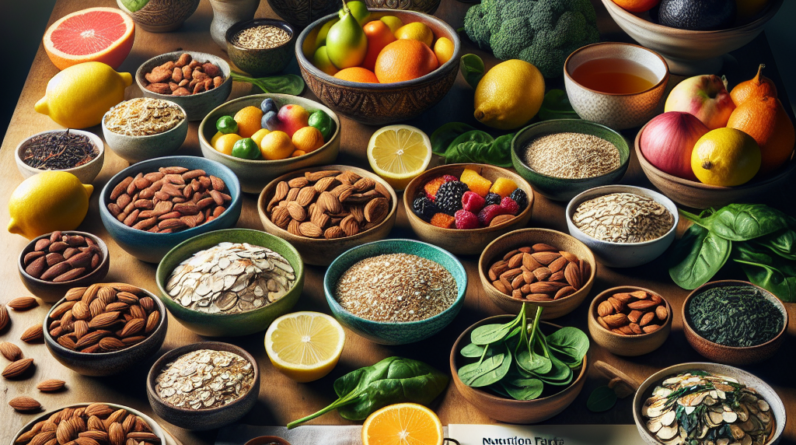
Understanding Organic Health
What is Organic Health?
So, let’s start by breaking it down. Organic health is about choosing foods that are not only good for you but also grown in a way that’s friendly to the planet. I know, it sounds like a tall order, but really, it’s about making smarter choices. Organic foods are produced without synthetic fertilizers, pesticides, or genetically modified organisms. When you eat organic, you embrace a lifestyle that prioritizes natural methods.
Get a Huge Discount and Bonus! Try for 90 Days Risk Free
This concept extends beyond just food. It envelops our entire lifestyle—our environment, the products we use, and even our mental well-being. The aim is to harmonize with nature while providing our bodies with essential nutrients from pure sources. It’s a philosophy that made my own health journey a lot more fulfilling.
Incorporating organic health into daily life feels more like a lifestyle change than a diet. It’s about being conscious of what’s on your plate and how your choices affect the broader ecosystem. Once you get into it, there’s this sense of empowerment and connection to nature that can be pretty satisfying.
Choosing Organic Foods
Shop Smart
When I first ventured into organic eating, I thought it meant shopping at fancy health food stores, but that’s not entirely true. You’d be surprised that many local grocery stores carry organic options that won’t leave your wallet weeping. Look for items labeled ‘USDA Organic’ to ensure they meet safety regulations. Trust me; this simple step can make all the difference!
Pay attention to seasonal produce, too. Seasonal foods tend to be fresher, tastier, and often more affordable. Farmers’ markets are buzzing places to snag fresh fruits and veggies while supporting local farmers! Not only are you getting organic produce, but you’re also contributing to your community.
And don’t overlook the bulk bins! These are my best-kept secret for purchasing grains, nuts, and other staples without breaking the bank. You often find organic options in bulk that save you some serious cash. It’s like being a savvy shopper while enjoying all those organic benefits.
Reading Labels
Deciphering the Jargon
One of the crucial steps in embracing organic health is learning how to read labels, and I know, it can feel like a foreign language! Start with the ingredients list: the fewer ingredients, the better. If you see a bunch of chemicals or preservatives, you might want to put that item back on the shelf.
Also, look out for the ‘certified organic’ stamp. This label means the product contains at least 95% organic ingredients—pretty trustworthy! Some terms like ‘natural’ can be deceiving since they aren’t regulated in the same way organic is. I had my fair share of misunderstandings until I picked up a few tricks.
Take your time and familiarize yourself with different certifications. Once you get the hang of it, it’ll feel like a fun puzzle to solve every time you shop. You’ll appreciate the experience more, and your body will thank you for it!
Get a Huge Discount and Bonus! Try for 90 Days Risk Free
Incorporating Organic into Your Lifestyle
Mindfulness Beyond Food
Organic living isn’t solely about what goes into your body—it’s about how you live your life. I found that practicing mindfulness through yoga or meditation complements my organic diet perfectly. It creates a holistic approach to health where mind, body, and spirit are all aligned.
Good Health Solution is Easier Than Most People Think!
Take a Look for Yourself!
Consider the products you use daily too! From skincare to cleaning supplies, many conventional products contain nasty chemicals that you’d want to avoid. Switching to brands that prioritize organic and natural ingredients can drastically reduce your exposure to them. It’s all about creating a healthy environment for yourself!
Need a Serious Energy BOOST? Huge Discount Try for 90 Days Risk Free
Additionally, cultivating an organic garden can bring immense joy. Getting your hands dirty and watching your own food grow is magical. Plus, it provides a great sense of accomplishment. I promise, nothing compares to the taste of a tomato you grew yourself!
Staying Committed
Building a Support Network
When I transitioned to an organic lifestyle, I quickly realized I needed a community. Finding friends or support groups who are on a similar journey can work wonders. Sharing tips or recipes not only keeps you motivated but makes the entire experience more enjoyable.
Social media is an incredible resource for connecting with like-minded individuals. You can join organic health groups and follow influencers who promote an organic lifestyle. You’ll find those little nuggets of encouragement can keep you going on tough days.
Remember, consistency is key! It’s not about being perfect; it’s about progress. Some days may feel discouraging, but embrace it as part of the journey. Celebrate your small wins, and don’t hesitate to lean on your support network when you need a little boost!
FAQ
1. How do I start my journey toward organic health?
Start small by incorporating organic fruits and vegetables into your meals. Gradually phase out non-organic foods and educate yourself about labels.
2. Is organic food more expensive?
It can be, but shopping smart by purchasing locally and in bulk can help reduce costs. Plus, the health benefits you receive are often worth the investment!
3. Can I trust organic labels?
Look for certifications such as ‘USDA Organic’ to ensure you’re purchasing high-quality products. Familiarizing yourself with different labels can help you make better choices.
4. How do I maintain motivation for an organic lifestyle?
Build a support network, celebrate small victories, and continuously learn about the benefits of organic health to keep the momentum going.
5. Are there environmental benefits to choosing organic?
Absolutely! Organic practices promote biodiversity, reduce pollution from synthetic chemicals, and prioritize sustainable farming methods, which help protect our planet.







